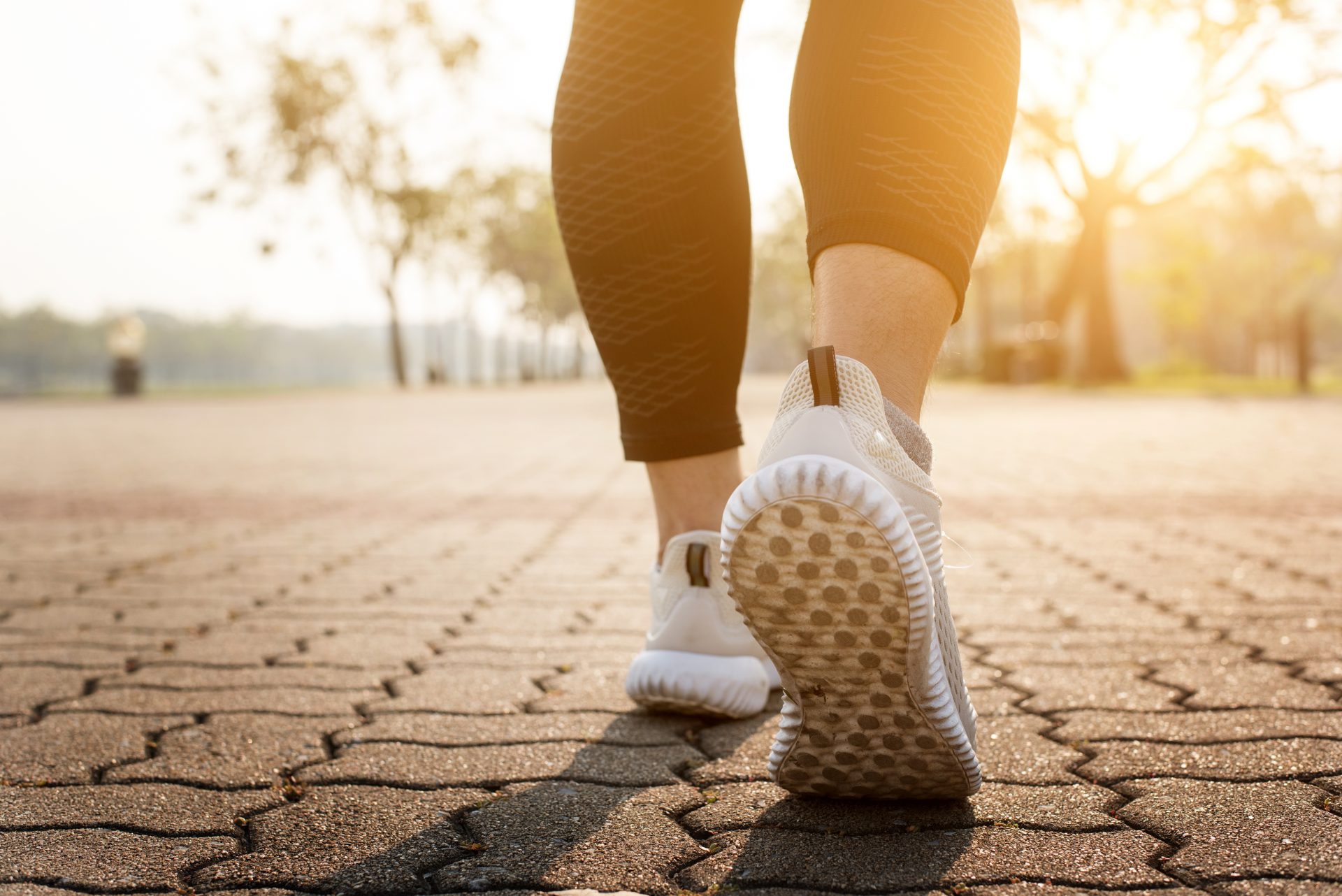From weakness to over-exercising, here’s why you struggle with aching hips when walking and hiking.
Among the reasons why walking has become one of our favourite activities is that it’s a gentle, low-impact activity. A stroll is a great antidote to our high-intensity workouts, allowing us to be mindful and take things slow while still reaping the benefits of moving our bodies.
But that doesn’t mean walking is easy. Long hikes can leave us with muscle soreness as bad as a tough strength training session, and we’re often hampered by aches and pains while out on our walking route.
That’s particularly true for our hips. While it makes sense that you might feel the joints working as they pull your legs forward with each step, should a low impact workout like walking really be leaving you in discomfort? That’s what we asked experts in muscle and joint health, and they explained four common reasons why your hips might be feeling the pinch.
You may also like
DOMS after walking: why does hiking make your muscles so sore?
1. You’re walking too far
If you’ve gone from 30 minute strolls around your neighbourhood to suddenly taking on a half marathon walk, you should probably expect your body to feel a little uncomfortable. “People can experience pain if they have had a sudden increase in walking duration,” says Yasmin Milne, a specialist musculoskeletal physiotherapist at Pure Sports Medicine. “It’s because the muscles and joints are pushed beyond the capacity of what they can tolerate, and there’s too much load put on the area.”
The obvious way to get around this is to increase your mileage slowly, just like you would with running. Walking may be lower intensity, but long distances are tough on the body regardless of the speed or impact. “Ensure you’re taking adequate rest and recovery between walks and try not to increase your overall weekly load – in terms of distance or time – by more than 10% each week for injury prevention,” adds Milne.

If you can’t shorten the walking distance, Milne advises that taking rests if you start to feel discomfort allows time for the symptoms to settle.
2. Your stride length
If you have pain at the front (or anterior) of your hip when you’re walking, it might be down to your technique. Milne says that “someone walking with too big a stride length for what their hip can tolerate can cause pain”.
In a 2010 paper, researchers from Boston University found that people who walk with a greater hip extension – that is opening the legs widely as you walk –have greater anterior hip pain than those who walk with a shorter stride. In fact, they found that when the hip extends an extra two degrees past its maximum extension angle there’s a 24% increase in force moving through the hip joint.
“Reducing your stride length and walking pace can reduce the amount of stress placed on the hip,” says Milne. If you’re not sure how to walk with a shorter stride, you can get a gait analysis at most sports or trainer shops that will analyse how you walk and give you tips to support your body.
You may also like
Walking for health: 8 simple ways to boost the health benefits of your daily walk
3. You’re on uneven terrain
Uneven ground can hurt your feet and challenge your ankle stability, but did you know it can also impact your hips? That’s because the joints are connected, rather than isolated, says Ann Clare, physiotherapist at MBST UK. “The impact on the hips is coming from the feet up,” she says.
If the ankles struggle to stabilise or fall out of alignment, it means there’s more work for the other joints and muscles. A 2013 study found that walking on uneven terrain increased the amount of strain on the hip by 62% and increased activation in seven muscles in the lower leg and thighs. The authors dubbed this ‘co-activation’, showing how muscles are used to support each other when under extra force or instability.
Most of us probably don’t want to walk on flat concrete, so what can you do to ease the pain when on grass or rocky walkways? “Shock-absorbing insoles can help reduce the impact on the feet and ankles that in turn put pressure on the hips,” advises Clare. And again, a gait analysis could be the way to go as it can help you find the shoe that supports your foot pattern.

4. Joint or muscle problems
In runners, weak glutes have long been linked with hip pain. In a 2005 paper, researchers tested hip strength in all six directions of motion in runners with hip injuries and runners with no injuries. Those who were injured were found to have noticeably weaker hip flexors and hip abductors.
As all of the glute muscles are used when striding, strengthening them could help make you a better walker too. Remember, just because the impact is less, it doesn’t mean the body doesn’t need to be strong.
The authors of a 2019 paper into hip pain wrote that “the gluteus maximus functions in conjunction with the other gluteal muscles (gluteus medius and gluteus minimus) to stabilise the hip by counteracting gravity’s hip adduction torque and maintain proper leg alignment”. That means that they stop the legs from falling inwards, as well as producing the “large amounts of force and power to contribute to hip extension” we need when walking.
You may also like
4 recovery tips to stop foot, calf and thigh muscle ache after hiking and walking
Glute strengthening exercises such as single-leg glute bridges and lying leg lifts were part of the programme researchers recommended to strengthen and stabilise the muscle to reduce hip pain.
“Making sure the joint is stable is important before walking. This can be done with pilates, yoga as well as weight training,” says Clare.
As well as weakness, she adds that “reducing stiffness in the muscles by stretching will always be helpful”. She recommends kneeling hip flexor stretches and spiderman stretches to open up the hip flexors that might be causing irritation.
More serious problems can be at play. “An injury or damage to the hip joint can trigger inflammation and therefore pain when walking. Conditions such as bursitis, tendonitis, a sprain or a hip labral tear can all cause this type of inflammation, as can deterioration of the bone and joints through osteoporosis or arthritis,” says Professor Paul Lee, a Harley Street sports and orthopaedic surgeon. That’s why he suggests that you should see a doctor if adequate rest, painkillers and post-walk treatments at home do not ease the hip pain or symptoms worsen.
For more walking tips, sign up to the Strong Women Training Club. And don’t forget that tickets to the Strong Women Trek are on sale now.
Images: Getty
Source: Read Full Article
